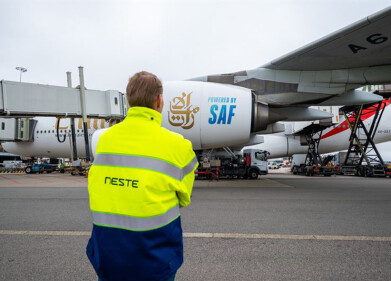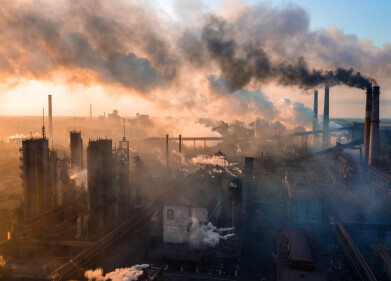Fuel for Thought
What Would Happen if Oil Runs Out?
Apr 24 2015
It’s a fairly established and agreed-upon fact that our oil supplies are dwindling. Ever since man first drilled into the Earth and extracted the black gold, upon which all of our industrial advances and economic empires have been built, the amount of oil in the Earth’s crust has been slowly depleting. The question should not been “what happens if oil runs out?”, but “what happens when oil runs out?”
This, however, is something that the human race cannot agree on. Generous estimates state that we have decades more oil to mine, especially given the rise and rise of the practice of hydraulic fracturing (fracking) and other innovative methods of oil extraction. Meanwhile, other estimates claim that Britain will have all but exhausted its supplies within five years. Of course, vested interests of various parties make it difficult to know who to trust. One thing’s for sure: we need to have a plan B.
As yet, no clear successor to oil has been discovered. We currently derive a third of all of our energy from the black gold, which are substantial shoes to fill. Nuclear, hydrogen, biofuel, wind, wave, solar… all of these have their particular advantages – and their particular drawbacks. For more information on possible alternatives to oil in the future, see the article What is the Best Source of Energy for the Future?
What Would Happen if Oil Ran Out Tomorrow?
Clearly, we must try to find a way to wean ourselves off of our dependence on oil and replace it with more sustainable forms of energy production. But what if we were caught off-guard? What if oil ran out tomorrow, with no contingency plan in place? Luckily, even the harshest of estimates give us at least a few years to redirect our energy efforts, but here are some of the consequences of what could happen if oil ran out tomorrow.
- Oil and petrol prices would skyrocket as people clamoured to fill up their cars with the last few supplies of oil.
- Eventually, all private transport would cease. Emergency services would continue for a time, but finally falter too.
- All public transport, including planes, trains and buses, would come to a grinding halt.
- Industry is would be hit very hard; millions would lose their jobs.
- Food production would also suffer on an incredible scale and hundreds of millions would starve to death as a result.
- Crime would reach all-time highs as the police and other emergency services became non-existent.
- Disease and epidemics would explode as drugs to treat them became impossible to manufacture.
- The global economy would collapse.
- The Earth would suffer widespread deforestation as people chopped down any available firewood to avoid freezing in winter.
- Winter would also cause mass exodus of northern cities across the globe.
- Communication systems, including the internet, would fall into disrepair and disuse.
Such a bleak outlook on life after oil may seem extreme, but when you take into account the fact that we rely on the resource for almost every aspect of our daily life (food production, transport, electricity, lighting, heating, clothing, pharmaceuticals, healthcare, electronics), it seems likely. This nightmare scenario should only ensure that we don’t fall into the trap of leaving it too late. We must act, and act soon.
Digital Edition
PIN 25.1 Feb/March
March 2024
In This Edition Safety - The technology behind the ION Science Tiger XT - Safety with ammonia and LOHCs as hydrogen carriers Analytical Instrumentation - Discussion on new tribology te...
View all digital editions
Events
Apr 22 2024 Hannover, Germany
Apr 22 2024 Marrakech, Morroco
Apr 22 2024 Muscat, Oman
Apr 22 2024 Rotterdam, Netherlands
Apr 23 2024 Singapore


















